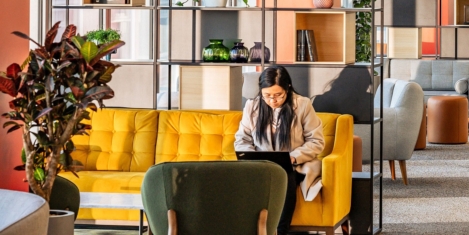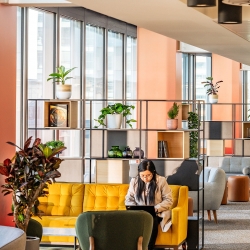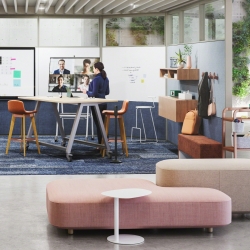To provide the best experiences, we use technologies like cookies to store and/or access device information. Consenting to these technologies will allow us to process data such as browsing behaviour or unique IDs on this site. Not consenting or withdrawing consent, may adversely affect certain features and functions.
The technical storage or access is strictly necessary for the legitimate purpose of enabling the use of a specific service explicitly requested by the subscriber or user, or for the sole purpose of carrying out the transmission of a communication over an electronic communications network.
The technical storage or access is necessary for the legitimate purpose of storing preferences that are not requested by the subscriber or user.
The technical storage or access that is used exclusively for statistical purposes.
The technical storage or access that is used exclusively for anonymous statistical purposes. Without a subpoena, voluntary compliance on the part of your Internet Service Provider, or additional records from a third party, information stored or retrieved for this purpose alone cannot usually be used to identify you.
The technical storage or access is required to create user profiles to send advertising, or to track the user on a website or across several websites for similar marketing purposes.
 A poll from Perkbox claims that moves towards hybrid and flexible working are changing the workplace experience for employees across the UK, with 57 percent feeling freer to be ‘themselves’ in this environment. This is particularly strong for women – 61 percent say they feel freer to be themselves when remote and hybrid working compared to 51 percent of men. In addition, 55 percent of employees say that remote and hybrid working has been a huge step forward in supporting more diverse and inclusive working environments. (more…)
A poll from Perkbox claims that moves towards hybrid and flexible working are changing the workplace experience for employees across the UK, with 57 percent feeling freer to be ‘themselves’ in this environment. This is particularly strong for women – 61 percent say they feel freer to be themselves when remote and hybrid working compared to 51 percent of men. In addition, 55 percent of employees say that remote and hybrid working has been a huge step forward in supporting more diverse and inclusive working environments. (more…)






 Uncertain times call for different measures and approaches, the old rules and playbooks are no longer applicable – so what are you going to do? Sit around, stagnate, hanker after old solutions trying to manipulate and squeeze them into new, unknowable, untried paradigms? No! One thing human beings are fairly good at is evolving and adapting to new and unknown situations and as we all know, being flexible and accepting change creates resilience and ensures survival.
Uncertain times call for different measures and approaches, the old rules and playbooks are no longer applicable – so what are you going to do? Sit around, stagnate, hanker after old solutions trying to manipulate and squeeze them into new, unknowable, untried paradigms? No! One thing human beings are fairly good at is evolving and adapting to new and unknown situations and as we all know, being flexible and accepting change creates resilience and ensures survival. 










 Even as we begin to glimpse the light at the end of the tunnel of the pandemic, evidence suggests that many workers want to carry over the working flexibility that the pandemic afforded into the post-pandemic world and a new future of work. Namely, employees are wanting to adopt a ‘mixed’ working style – spending time both working in the workplace,
Even as we begin to glimpse the light at the end of the tunnel of the pandemic, evidence suggests that many workers want to carry over the working flexibility that the pandemic afforded into the post-pandemic world and a new future of work. Namely, employees are wanting to adopt a ‘mixed’ working style – spending time both working in the workplace, 











April 22, 2022
Hybrid working and how we escape the constraints of leadership
by John Higgins and Jennifer Bryan • Comment, Flexible working